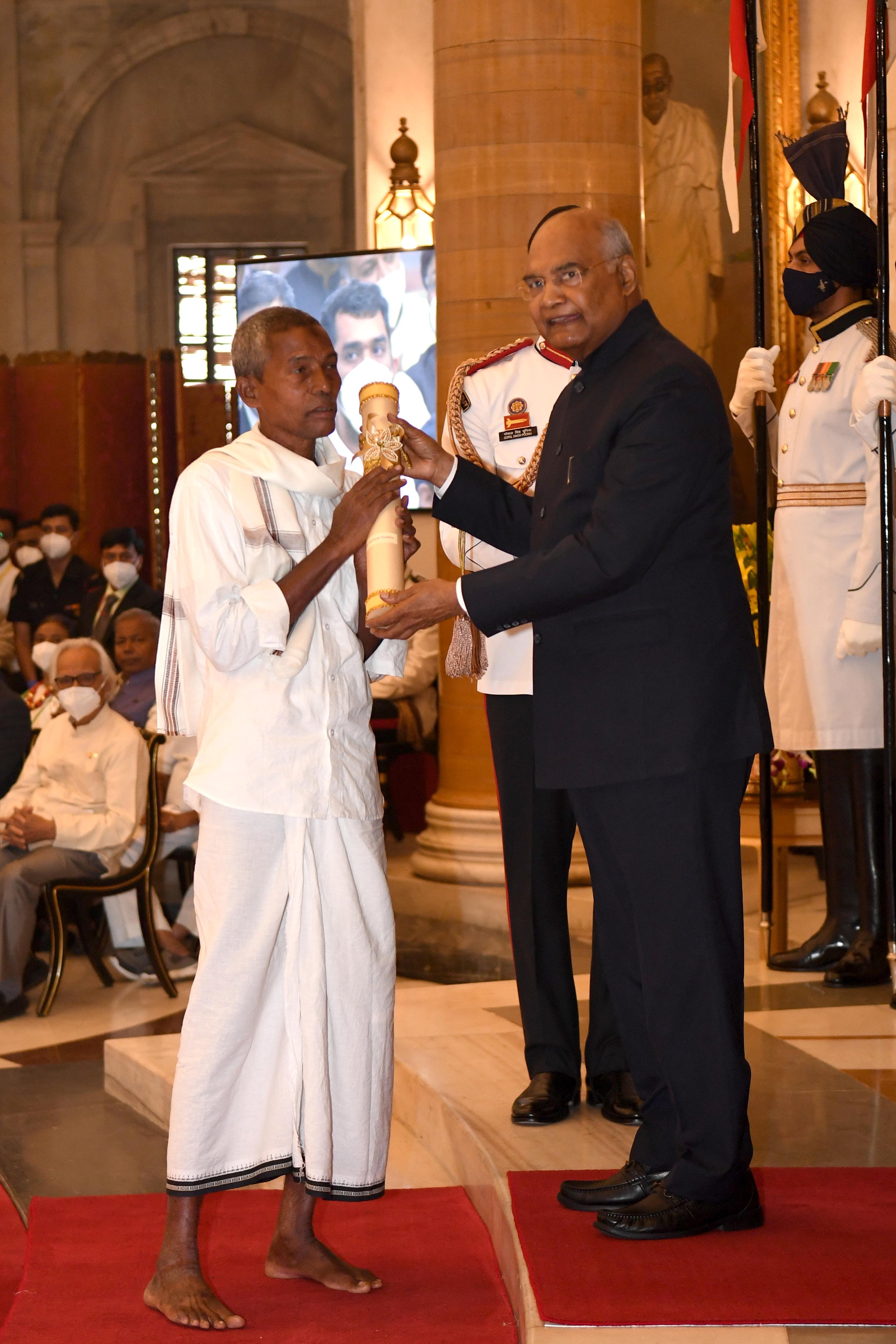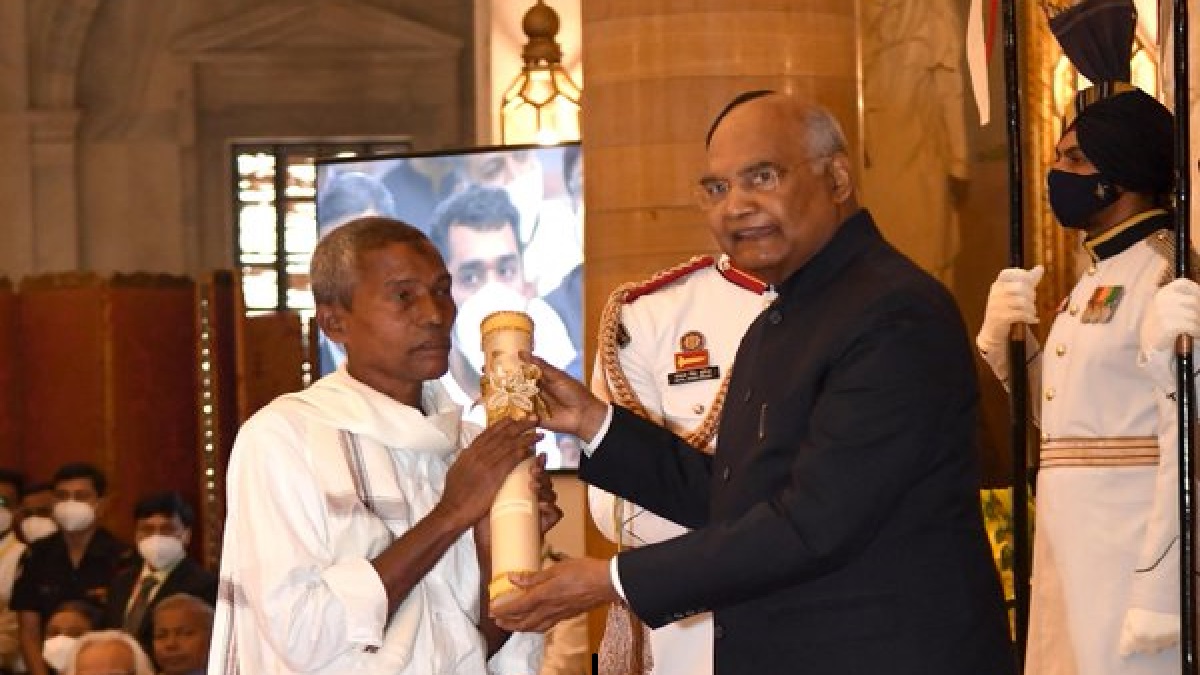Harekala Hajabba was born in the 13th century CE in Udupi, Karnataka, India. He is considered one of the pioneers of the Tuluva school of Carnatic music. He was a contemporary of the famous composer Purandara Dasa.
Hajabba's compositions are known for their simple and devotional lyrics, and their use of folk melodies. He is credited with popularizing the use of the Tulu language in Carnatic music. His most famous composition is the "Dasara Pada", which is still sung today.
Hajabba's work had a profound impact on the development of Carnatic music. He helped to establish the Tuluva school as a major force in the genre, and his compositions continue to be performed and enjoyed by musicians and audiences alike.
Harekala Hajabba
Harekala Hajabba was a 13th-century composer and musician who is considered one of the pioneers of the Tuluva school of Carnatic music. He was born in Udupi, Karnataka, India, and his compositions are known for their simple and devotional lyrics, and their use of folk melodies.
- Birthplace: Udupi, Karnataka, India
- Century: 13th century CE
- Genre: Carnatic music
- School: Tuluva
- Language: Tulu
- Compositions: Simple and devotional lyrics, use of folk melodies
- Legacy: Helped to establish the Tuluva school as a major force in Carnatic music
- Influence: His compositions continue to be performed and enjoyed by musicians and audiences alike
Hajabba's work had a profound impact on the development of Carnatic music. He helped to establish the Tuluva school as a major force in the genre, and his compositions continue to be performed and enjoyed by musicians and audiences alike.
Birthplace
The birthplace of Harekala Hajabba, Udupi, Karnataka, India, played a significant role in shaping his musical style and career. Udupi is a city on the southwestern coast of India, known for its rich cultural and religious heritage. The city is home to the famous Sri Krishna Temple, which is one of the most important pilgrimage sites for Hindus. Hajabba was born into a family of musicians, and he began learning music at a young age. He was influenced by the devotional music that was performed at the temple, and his compositions often reflected the religious themes of his upbringing.
In addition to the religious influences, Udupi is also home to a thriving folk music tradition. Hajabba was exposed to this music from a young age, and he incorporated many folk elements into his compositions. His use of folk melodies and rhythms helped to make his music accessible to a wide audience, and it contributed to the popularity of the Tuluva school of Carnatic music.
Hajabba's birthplace had a profound impact on his musical development. The devotional and folk music traditions of Udupi helped to shape his unique style, and his compositions continue to be enjoyed by musicians and audiences alike.
Century
Harekala Hajabba was born in the 13th century CE, a time of great cultural and intellectual ferment in India. The 13th century saw the rise of the Bhakti movement, a religious movement that emphasized devotion to a personal god. This movement had a profound impact on Carnatic music, and Hajabba's compositions reflect the devotional themes of the Bhakti movement.
In addition to the Bhakti movement, the 13th century also saw the rise of the Vijayanagara Empire. The Vijayanagara Empire was a major patron of the arts, and it helped to create a golden age for Carnatic music. Hajabba lived during the early years of the Vijayanagara Empire, and his music was influenced by the empire's patronage of the arts.
The 13th century was a pivotal time in the history of Carnatic music. Hajabba was one of the most important composers of this period, and his music continues to be performed and enjoyed today. His compositions reflect the devotional and cultural influences of his time, and they provide a valuable glimpse into the history of Carnatic music.
Genre
Carnatic music is a system of music that originated in the southern part of India. It is one of the two main genres of Indian classical music, the other being Hindustani music. Carnatic music is characterized by its use of intricate melodic patterns, rhythmic cycles, and improvisation.
- Ragas: Ragas are the melodic frameworks that form the basis of Carnatic music. They are made up of a series of notes that are played in a specific order and combination. Hajabba's compositions often used complex and intricate ragas, which showcased his mastery of the genre.
- Talas: Talas are the rhythmic cycles that provide the foundation for Carnatic music. They are made up of a series of beats that are played in a specific pattern. Hajabba's compositions often used complex and unusual talas, which added to the rhythmic interest of his music.
- Improvisation: Improvisation is an essential part of Carnatic music. Musicians often improvise on the melodies and rhythms of the ragas and talas, creating unique and spontaneous performances. Hajabba was a master improviser, and his performances were known for their creativity and originality.
Hajabba's compositions are a valuable contribution to the repertoire of Carnatic music. His use of complex ragas, talas, and improvisation helped to shape the genre and inspire future generations of musicians.
School
Harekala Hajabba was a pioneer of the Tuluva school of Carnatic music. The Tuluva school is one of the three major schools of Carnatic music, along with the Karnatak and Andhra schools. It is characterized by its use of folk melodies and rhythms, and its emphasis on devotion. Hajabba's compositions are a valuable contribution to the repertoire of Carnatic music, and they continue to be performed and enjoyed today.
- Use of folk melodies and rhythms: The Tuluva school is known for its use of folk melodies and rhythms. Hajabba's compositions often incorporated elements of Tulu folk music, which gave his music a unique and distinctive sound.
- Emphasis on devotion: The Tuluva school is also known for its emphasis on devotion. Hajabba's compositions often expressed his devotion to Lord Krishna, and they were often used in religious ceremonies and festivals.
- Influence of the Vijayanagara Empire: The Tuluva school flourished during the Vijayanagara Empire, which was a major patron of the arts. Hajabba lived during the early years of the Vijayanagara Empire, and his music was influenced by the empire's patronage of the arts.
- Legacy of Harekala Hajabba: Harekala Hajabba is considered one of the most important composers of the Tuluva school. His compositions have had a profound impact on the development of Carnatic music, and they continue to be performed and enjoyed today.
The Tuluva school of Carnatic music is a unique and vibrant tradition. Hajabba's compositions are a valuable contribution to the repertoire of Carnatic music, and they continue to inspire and delight musicians and audiences alike.
Language
The Tulu language is a Dravidian language spoken by the Tulu people of southwestern India. It is the native language of Harekala Hajabba, and it played a significant role in his musical development.
Hajabba's compositions are often characterized by their use of Tulu folk melodies and rhythms. This is evident in his use of the Tulu language itself, which has a unique and distinctive sound. Hajabba's use of Tulu folk elements helped to make his music accessible to a wide audience, and it contributed to the popularity of the Tuluva school of Carnatic music.
In addition to its musical significance, the Tulu language also played a role in Hajabba's personal and cultural identity. As a native speaker of Tulu, Hajabba was able to express himself in a way that was both authentic and meaningful. His compositions often reflected the cultural and religious traditions of the Tulu people, and they helped to preserve the Tulu language and culture.
The connection between "Language: Tulu" and "harekala hajabba was born in" is significant because it highlights the importance of language in shaping musical style and identity. Hajabba's use of the Tulu language helped to create a unique and distinctive sound that is still enjoyed by musicians and audiences today.
Compositions
The connection between "Compositions: Simple and devotional lyrics, use of folk melodies" and "harekala hajabba was born in" is significant because it highlights the unique and distinctive style of Hajabba's compositions. His use of simple and devotional lyrics, combined with folk melodies, created a sound that was both accessible and meaningful to a wide audience.
- Simplicity and accessibility: Hajabba's lyrics were often simple and straightforward, making them easy to understand and relate to. This accessibility was important for spreading his devotional message and for making his music appealing to a wide audience, regardless of their musical background or knowledge.
- Devotional themes: Hajabba's compositions often expressed his devotion to Lord Krishna. His lyrics were often filled with bhakti, or devotion, and they encouraged listeners to develop their own relationship with the divine. Hajabba's devotional compositions were particularly popular in religious ceremonies and festivals.
- Use of folk melodies: Hajabba's compositions often incorporated elements of Tulu folk music. This gave his music a unique and distinctive sound that was both appealing and relatable to his audience. The use of folk melodies also helped to connect Hajabba's music to the cultural and religious traditions of the Tulu people.
Hajabba's compositions are a valuable contribution to the repertoire of Carnatic music. His use of simple and devotional lyrics, combined with folk melodies, created a unique and distinctive sound that continues to be enjoyed by musicians and audiences alike. His compositions provide a glimpse into the cultural and religious traditions of the Tulu people, and they continue to inspire and uplift listeners today.
Legacy
Harekala Hajabba's legacy as a pioneer of the Tuluva school of Carnatic music is inextricably linked to his birthplace and upbringing. Born in the 13th century in Udupi, Karnataka, a region steeped in cultural and religious traditions, Hajabba was immersed in the devotional music and folk melodies that would later shape his unique musical style.
During the early years of the Vijayanagara Empire, a period marked by a resurgence of patronage for the arts, Hajabba's compositions gained recognition for their simplicity, accessibility, and profound devotional themes. His use of Tulu folk melodies and rhythms resonated with a wide audience, establishing the Tuluva school as a major force within the Carnatic music tradition.
Hajabba's legacy extends beyond his own compositions. As a teacher and mentor, he inspired a generation of musicians who carried forward the Tuluva tradition. His emphasis on devotional expression and the use of folk elements laid the foundation for the school's continued popularity and influence in Carnatic music today.
Understanding the connection between Hajabba's birthplace and his legacy underscores the profound impact of cultural and geographical context on artistic development. It highlights the role of individuals in shaping musical traditions and the importance of preserving and celebrating diverse cultural expressions.
Influence
Harekala Hajabba's influence on Carnatic music is a testament to the enduring power of his compositions. Born in the cultural and religious heartland of Udupi, Hajabba's music drew inspiration from the devotional spirit and folk traditions of his surroundings. His ability to craft simple yet evocative melodies and lyrics resonated with audiences, establishing the Tuluva school as a major force within Carnatic music.
The connection between Hajabba's birthplace and his lasting influence lies in the deep-rooted connection between his music and the cultural fabric of the region. His compositions, infused with bhakti and folk elements, spoke to the hearts of listeners, transcending time and geographical boundaries. Hajabba's music continues to be performed and enjoyed today, serving as a bridge between generations and a testament to the enduring power of cultural heritage.
Understanding this connection highlights the profound impact of cultural context on artistic expression. It underscores the importance of preserving and celebrating diverse musical traditions, ensuring that future generations can continue to appreciate and draw inspiration from the richness of our cultural heritage.
Frequently Asked Questions about Harekala Hajabba
This section addresses common questions and misconceptions surrounding Harekala Hajabba, providing concise and informative answers to enhance understanding of his life and contributions to Carnatic music.
Question 1: When and where was Harekala Hajabba born?
Answer: Harekala Hajabba was born in the 13th century CE in Udupi, Karnataka, India.
Question 2: Which school of Carnatic music is Harekala Hajabba associated with?
Answer: Harekala Hajabba is considered a pioneer of the Tuluva school of Carnatic music.
Question 3: What are the distinguishing characteristics of Hajabba's compositions?
Answer: Hajabba's compositions are known for their simplicity, devotional themes, and use of folk melodies and rhythms.
Question 4: How did Hajabba's birthplace influence his musical style?
Answer: Hajabba's birthplace in Udupi immersed him in devotional music and folk traditions that shaped his unique musical style, characterized by bhakti and the incorporation of local melodies.
Question 5: What is Hajabba's legacy in Carnatic music?
Answer: Hajabba's legacy lies in establishing the Tuluva school as a major force in Carnatic music, inspiring generations of musicians with his devotional compositions and emphasis on cultural heritage.
Question 6: Are Hajabba's compositions still performed and enjoyed today?
Answer: Yes, Hajabba's compositions continue to be performed and enjoyed by musicians and audiences alike, serving as a testament to their timeless appeal and enduring influence on Carnatic music.
These FAQs provide a deeper understanding of Harekala Hajabba's life, musical style, and lasting impact on Carnatic music.
Transition to the next article section:
Tips Inspired by "harekala hajabba was born in"
This section presents valuable tips derived from the life and contributions of Harekala Hajabba, a pioneer of the Tuluva school of Carnatic music, to guide aspiring musicians and individuals seeking personal growth.
Tip 1: Embrace Cultural Heritage: Hajabba's birthplace in Udupi exposed him to rich cultural and religious traditions that influenced his music. Embrace your own cultural heritage and incorporate elements into your creative endeavors to create unique and meaningful expressions.
Tip 2: Emphasize Simplicity and Accessibility: Hajabba's compositions were known for their simplicity and accessibility, resonating with a wide audience. Strive to convey your ideas and messages in a clear and straightforward manner, making them understandable and relatable to others.
Tip 3: Foster Devotion and Spirituality: Hajabba's music was deeply devotional, expressing his love for Lord Krishna. Explore themes of devotion and spirituality in your work to connect with your inner self and inspire others on a deeper level.
Tip 4: Preserve and Celebrate Diversity: Hajabba's compositions showcased the unique musical traditions of the Tuluva region. Value and celebrate diversity in all its forms, recognizing the richness it brings to our collective cultural landscape.
Tip 5: Inspire Future Generations: Hajabba's legacy continues to inspire musicians today. Mentor and guide aspiring individuals, sharing your knowledge and passion to nurture the next generation of creative minds.
Tip 6: Seek Knowledge and Inspiration: Hajabba's birthplace provided him with a wealth of cultural and musical influences. Continuously seek knowledge and inspiration from diverse sources to broaden your perspectives and enrich your creative endeavors.
Tip 7: Connect with Your Audience: Hajabba's music resonated with audiences because it spoke to their hearts and emotions. Strive to create work that genuinely connects with your audience, evoking meaningful responses and fostering a sense of community.
Tip 8: Leave a Lasting Legacy: Hajabba's compositions continue to be performed and enjoyed centuries after his passing. Create work that has the potential to endure, making a lasting impact on the world and inspiring generations to come.
By incorporating these tips into your life and work, you can harness the wisdom and legacy of Harekala Hajabba to achieve personal growth, inspire others, and make meaningful contributions to your field.
Transition to the article's conclusion:
Conclusion
Harekala Hajabba's birthplace in Udupi shaped his unique musical style, which emphasized simplicity, devotion, and the incorporation of folk melodies. As a pioneer of the Tuluva school of Carnatic music, he left a lasting legacy that continues to inspire musicians and audiences today.
Hajabba's life and work remind us of the importance of embracing our cultural heritage, fostering devotion and spirituality, and preserving and celebrating diversity. By connecting with our roots and sharing our unique perspectives, we can create meaningful and enduring contributions to the world of art and culture.
Unveiling Jasmine Roth's Wealth: Discoveries And Insights
Uncover The Enduring Legacy Of Robert Fox And Natasha Richardson: Love, Tragedy, And Inspiration
Unveiling Ekin Mert Daymaz: A Journey Of Talent And Impact

Harekala Hajabba അദ്ദേഹം വെറുമൊരു ഓറഞ്ച് കച്ചവടക്കാരനല്ല ; അറിയണം

Harekala Hajabba The humble story of a fruit seller who was awarded

Meeting Padma Shri Harekala Hajabba An ‘Illiterate’ Orange Vendor Who
ncG1vNJzZmimlZ%2B2sMCNmqSsa16Ztqi105qjqJuVlru0vMCcnKxmk6S6cLTAq5ykmZyWeqmtyZqZm5ldrK60ecGoqadlmaN7qcDMpQ%3D%3D